
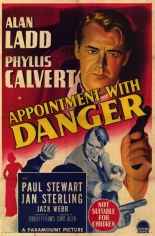 Appointment with Danger is one of those movies that come along every so often: one from which you don’t expect more than a mildly diverting 89 minutes, but turns out to be a small gem. The cast includes Alan Ladd and some favorite character actors — Jack Webb, Harry Morgan, Paul Stewart, Jan Sterling — that I’d like to kick back and have a beer with. The picture was credited as being film noir, so why not take a chance?
Appointment with Danger is one of those movies that come along every so often: one from which you don’t expect more than a mildly diverting 89 minutes, but turns out to be a small gem. The cast includes Alan Ladd and some favorite character actors — Jack Webb, Harry Morgan, Paul Stewart, Jan Sterling — that I’d like to kick back and have a beer with. The picture was credited as being film noir, so why not take a chance?
Ladd is Al Goddard, a postal inspector no one likes, sent to Gary, Ind., to investigate the murder of one of his colleagues. He finds that the only witness is a nun, Sister Augustine (Phyllis Calvert). As soon as they meet, you suspect that he will end up carrying an unlightable torch for her, but it doesn’t happen. They are both too dedicated to their jobs for such foolishness. Besides, she’s already married.
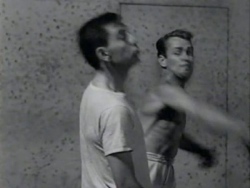 She saw only one of the killers (Morgan), but the other one (Webb) thinks she should be killed just to be on the safe side. Goddard goes undercover as a bent government man in order to find out what these crooks are up to, and how to stop it.
She saw only one of the killers (Morgan), but the other one (Webb) thinks she should be killed just to be on the safe side. Goddard goes undercover as a bent government man in order to find out what these crooks are up to, and how to stop it.
The pleasure comes from the obvious fun the cast is having and the surprisingly sharp dialogue, like Goddard defining love as the feeling a man has for a gun that doesn’t jam, and later, a great line perfectly delivered. When the crooks capture the nun, they decide to kill her, then Goddard talks them out of it and one of them turns to her and says, “Sister, you’re either very lucky or you’ve been living right.” To a nun, he says this, and no one onscreen reacts, despite the fact that it’s the dumbest thing they’ve ever heard. —Doug Bentin

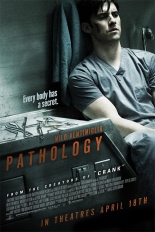
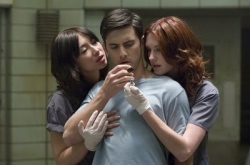 But, wait, there’s more! They also engage in group activities like smoking crack and having sex on the slabs. Why? The only good reason I can think of is because this was written by the reigning kings of over-the-top cinema, Neveldine/Taylor, who wrote and directed the
But, wait, there’s more! They also engage in group activities like smoking crack and having sex on the slabs. Why? The only good reason I can think of is because this was written by the reigning kings of over-the-top cinema, Neveldine/Taylor, who wrote and directed the 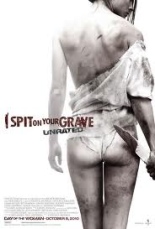
 And now here is where I’m supposed to tear apart
And now here is where I’m supposed to tear apart 
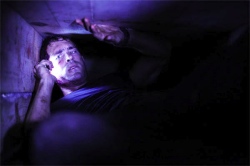 When I first saw the movie’s trailer, which includes the moment when an asp slithers into the coffin through a crack, I thought the film would be a tough sell — not because it plays so strongly on the common fear of enclosed places, but because its lack of action would bore younger audiences.
When I first saw the movie’s trailer, which includes the moment when an asp slithers into the coffin through a crack, I thought the film would be a tough sell — not because it plays so strongly on the common fear of enclosed places, but because its lack of action would bore younger audiences. 
 When Uggams is towed into town by Ted Cassidy (Lurch from
When Uggams is towed into town by Ted Cassidy (Lurch from